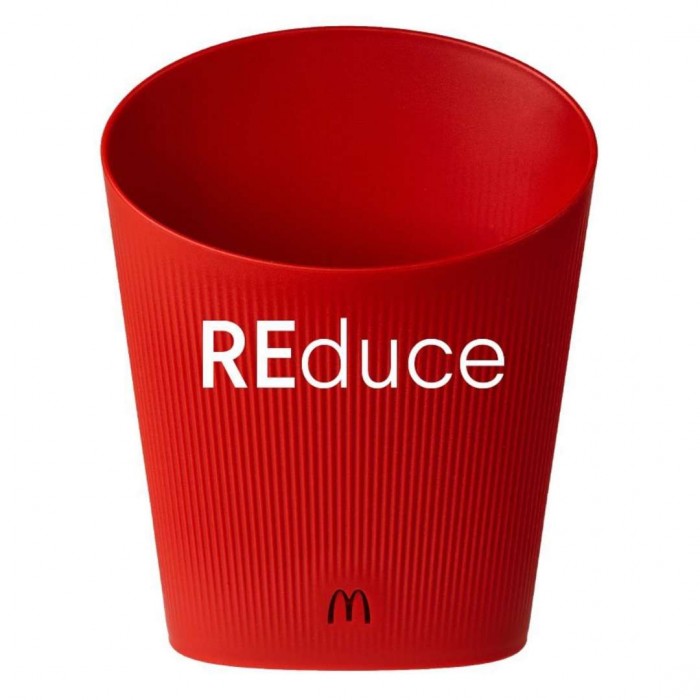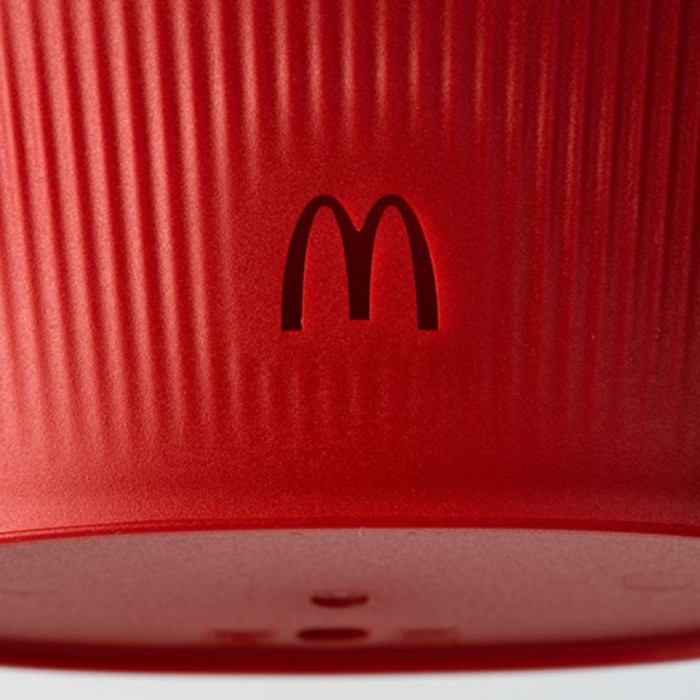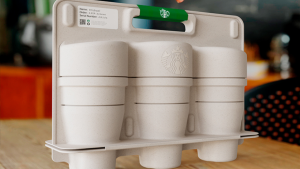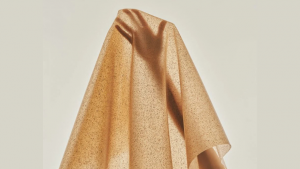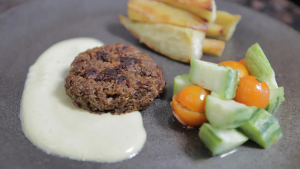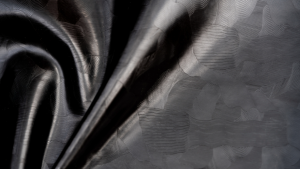As the largest fast-food chain in the world, McDonald’s is responsible for hundreds of millions of boxes, cups, cutlery and trays that are immediately discarded and contribute to waste landfills. Now, a French global design studio has collaborated with the international fast-food chain to create a reusable alternative to its single-use tableware.
Over the last two years, Elium Studio has worked with McDonald’s France on a range of tableware containers that are reusable yet maintain the signature McDonald's aesthetic. The new tableware has been carefully designed with three elements in mind: reusability and sustainability, enhancing the customer’s dining experience, and maintaining the design essence of McDonald’s. The new range includes cups for drinks, French-fry and nugget containers, and condiment holders.
The release of the line of reusable packaging coincides with a new rule introduced by the French government earlier this year that restaurants with more than 20 seats — including fast-food outlets — must provide reusable, washable tableware alternatives. French President Emmanuel Macron tweeted, ‘The anti-waste law is not only the end of plastic straws. Look around you: in France, changes are at work to change our consumption patterns and reduce our waste. We are pushing to do it globally. Let’s change the game!’
To create the reusable range, Elium used Tritan, a BPA-free plastic resin that resembles glass and ceramic in terms of hardness and transparency. (BPA, or Bisphenol-A, is an industrial chemical used in plastics manufacturing that can leach out of food or drink containers and into food or beverages, and cause health problems.) Apart from its reusability potential, Tritan has specific properties that preserve the taste and smell of food without contamination by the material.
While it’s unclear whether the reusable packaging will be expanded to McDonald’s outlets outside of France, this is a step in the right direction in improving the sustainability of the food industry.
Read more
Necessity is the mother of invention
An alternative to disposable plastic made with potatoes
Photographs: Elium Studio.

